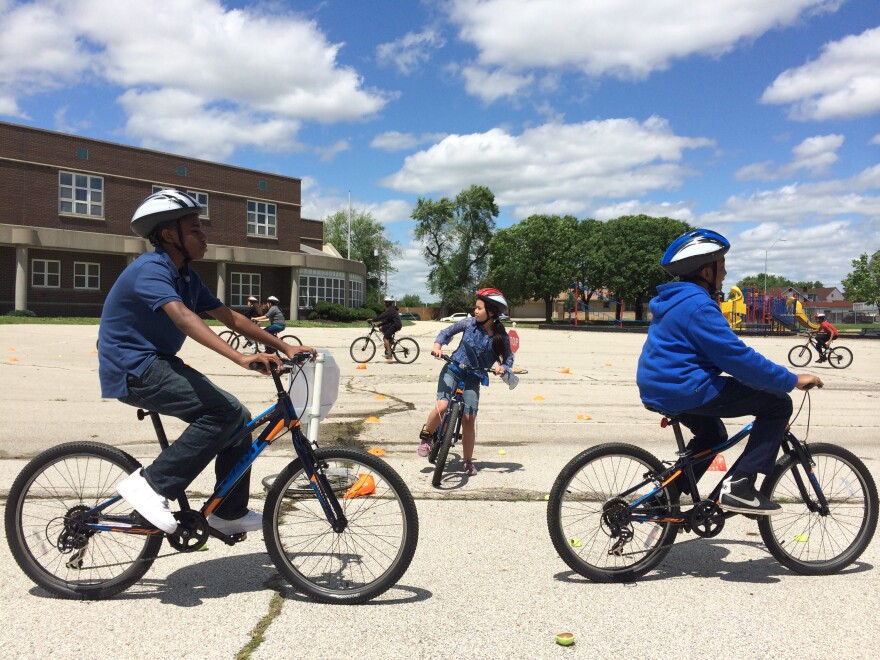A proposal for up to 658 miles of trails and lanes plus cycling programs at a cost of around $400 million looks like a Kansas City cyclist’s dream.
Its creators, however, insist it’s just a guidepost.
An ordinance to adopt the Bike KC Master Plan, which has been developed over the last three years, may be voted on soon by the City Council and could help determine the future of cycling in Kansas City.
The 156-page plan outlines a long-term development strategy for bike infrastructure throughout Kansas City that its designers say prioritizes safety and equity and includes a 5-Year Priority Plan, consisting of three phases of development.
What parts of town would the plan connect?
When completed, the 5-Year Priority Network would connect downtown, midtown, east and south Kansas City, as well as expand lanes and paths north of the Missouri river and would include connections to the Rock Island Trail spur, which trail advocates are working to connect with trails that span the state.
The complete master plan would expand lanes and path even further.
The plans’ authors insist it isn’t a mandate, writing that it “must act as a living article that provides specific starting points from which to approach public infrastructure projects, policy creation and outreach efforts.”
The plan dates to December 2016, when the City Auditor’s Office determined the 2001 Bike KC plan was not sufficient to meet the city’s goals. The city started over, with a series of community meetings and planning sessions that resulted in a new proposal, which was released in March.
As part of a focus on safety and accessibility, 59% of the completed bike network would be protected bike lanes, shared used paths or recreational trails, as opposed to conventional bike lanes or road “diets” painted on streets, which restrict automobile traffic flow to make room for bike lanes.
How much will the plan cost?
The 5-Year Priority Network is estimated to cost between $23 and $100 million, depending on how separated the lanes or paths are from traffic. The cost of the completed master plan is estimated between $387 and $418 million.
The plan also includes funding for cycling safety and education programs and calls for the creation of more bike racks and other cyclist amenities.
Rather than a specific funding plan, the master plan suggests a number of ways the infrastructure could be paid for, including bonds, a sales tax, the city’s general fund, federal funding transportation resources and development funds or grants, among other sources.
An updated version of the plan was presented to the City Council’s Transportation and Infrastructure & Planning, Zoning and Development Joint Committee on April 18, and dozens of community supporters and opponents spoke. The committee, however, lost its quorum and was unable to vote.
What do the plan’s critics say?
Opponents of the plan are concerned about its costs and whether the cycling infrastructure would be used regularly by people who are not already active cyclists.
Other critics have raised questions about how protected lanes could reduce the visibility and usability of roads, citing issues with the three miles of existing protected bike lanes on Armour Boulevard that were unveiled in August 2018.
What’s next?
Jermaine Reed, who heads the Transportation and Infrastructure Committee, and Scott Taylor, who chairs the Planning, Zoning and Economic Development Committee, will need to agree on a date before the ordinance can be taken up again by the joint committee.
If approved by the joint committee, it would then go to the full City Council.
Alex Smith is a health reporter for KCUR. You can reach him on Twitter @AlexSmithKCUR.



